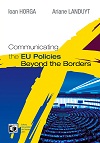Communicating the EU Political Priorities and the EU Member States’ National Preferences as the New External Communication of the EU
Communicating the EU Political Priorities and the EU Member States’ National Preferences as the New External Communication of the EU
Author(s): Ana -Maria GhimişSubject(s): Politics / Political Sciences
Published by: Editura Universitatii din Oradea
Keywords: the European Union; the Russian Federation; external communication; common/national interest; the Georgian war; the Cyprus crisis
Summary/Abstract: The European Union is a unique organisation that has followed a different path than any other international organisation in terms of intergovernmentalsupranational patterns. The EU is among the very few international organisations that can be easily explained by a supra-nationalist approach, in terms of common good principle or transfer of sovereignty. But, we cannot exclude the fact that the Council of UE has still the most important prerogatives in term of security and defence, or the fact that states have different national interests. This problem intervenes, when this diversity is affecting the external communication of the EU. The present paper will focus on the EU’s effectiveness regarding its external communication with its outside partners, as the communication with non-EU players reveals the true political power of the organisation as it may be perceived by others as a single powerful player or as a group of states with different national preferences.
Journal: Eurolimes
- Issue Year: 2013
- Issue No: Supplement
- Page Range: 156-168
- Page Count: 12
- Language: English
- Content File-PDF

